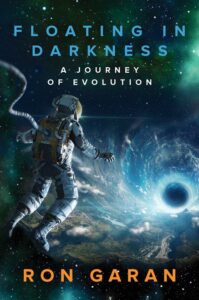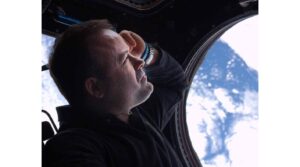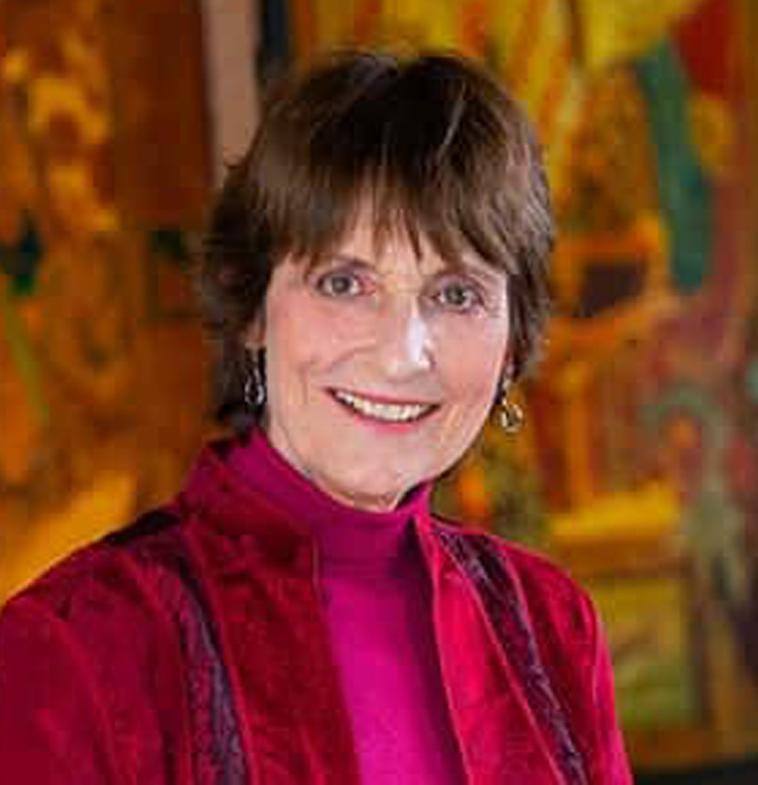 Colonel Ron Garan’s orbital perspective began as a small boy on July 20, 1969, when he saw a man walk on the moon. He realized that we are explorers, no longer confined to earth, and set a course to be part of that journey. He became a pilot in the military, then a fighter pilot, and eventually a test pilot. NASA chose him from the ranks of test pilots for space exploration but sent him to the Aquarius Research Station in the ocean as his first mission. Eventually, he went to space on the U.S. space shuttle where he helped build the International Space Station, and finally with the Russians on a Soyus spacecraft for six months to work on the space station. It was seeing earth from space, and his experience working with “the enemy” that transformed his perspective of our relationship with others, how interconnected we are and how we can use that sense of unity to see the big picture and solve problems here that affect everyone. His first book, The Orbital Perspective: Lessons in Seeing the Big Picture from a Journey of 71 Million Miles, opens a window on what it was like to work with such a diverse group of people in a small isolated environment and the implications that has for how we live and work here at home.
Colonel Ron Garan’s orbital perspective began as a small boy on July 20, 1969, when he saw a man walk on the moon. He realized that we are explorers, no longer confined to earth, and set a course to be part of that journey. He became a pilot in the military, then a fighter pilot, and eventually a test pilot. NASA chose him from the ranks of test pilots for space exploration but sent him to the Aquarius Research Station in the ocean as his first mission. Eventually, he went to space on the U.S. space shuttle where he helped build the International Space Station, and finally with the Russians on a Soyus spacecraft for six months to work on the space station. It was seeing earth from space, and his experience working with “the enemy” that transformed his perspective of our relationship with others, how interconnected we are and how we can use that sense of unity to see the big picture and solve problems here that affect everyone. His first book, The Orbital Perspective: Lessons in Seeing the Big Picture from a Journey of 71 Million Miles, opens a window on what it was like to work with such a diverse group of people in a small isolated environment and the implications that has for how we live and work here at home.
Three Books from the Orbital Perspective
 Ron builds on that perspective in all three of his books, after releasing The Orbital Perspective in 2015, he wrote a children’s book, Railroad to the Moon, about a little girl who goes to the moon and becomes mayor of a city there. Ron’s goal was to show girls and boys they can dream big, and those dreams might come true. Then he released Floating in Darkness: A Journey of Evolution, which is a follow-up to The Orbital Perspective and narrates his perspective of all of his adventures – from fighter pilot to astronaut – and the dichotomy of grappling with mortality in an instant with the infinite sense of seeing all as one that comes from the orbital perspective from space. Most of all he applies those experiences and that perspective to how and why we all need to shift our perspective and accelerate our evolution to address the crises on our spaceship earth.
Ron builds on that perspective in all three of his books, after releasing The Orbital Perspective in 2015, he wrote a children’s book, Railroad to the Moon, about a little girl who goes to the moon and becomes mayor of a city there. Ron’s goal was to show girls and boys they can dream big, and those dreams might come true. Then he released Floating in Darkness: A Journey of Evolution, which is a follow-up to The Orbital Perspective and narrates his perspective of all of his adventures – from fighter pilot to astronaut – and the dichotomy of grappling with mortality in an instant with the infinite sense of seeing all as one that comes from the orbital perspective from space. Most of all he applies those experiences and that perspective to how and why we all need to shift our perspective and accelerate our evolution to address the crises on our spaceship earth.
With Diversity of Perspective We See in 3D
Ron says that he believes most people want to leave the world in a better place than they found it, but if they saw it from “the orbital perspective,” they would see what happens to our society over the course of time. Little actions we take every day affects every other action to change the overall direction. He, like many others, thinks of diversity as a strength. He says, “One of the reasons why diversity is a strength is because with diversity comes diversity of perspective. And when  we look at things from two different points of view, we see it in stereoscopic vision. We see in 3-D, and we start to see the depth. And so, the more perspectives we can apply to a challenge or a problem, the deeper our understanding of that challenge will be, the more lasting and effective will be the solutions. And so the very diversity of our perspectives is a source of strength.”
we look at things from two different points of view, we see it in stereoscopic vision. We see in 3-D, and we start to see the depth. And so, the more perspectives we can apply to a challenge or a problem, the deeper our understanding of that challenge will be, the more lasting and effective will be the solutions. And so the very diversity of our perspectives is a source of strength.”
The problem with living in these divisive times, is that people in the political and business world go to a default reaction and assume that a difference of opinion is a threat. Ron says that many people fear that if they acknowledge merit from the different viewpoint, they will lose, and the other person/people will gain. He contrasts that with how 15 different countries, with different cultures, languages and religions came together to build the International Space Station, as big as a football field and possibly the most complicated device every built, and they did it in space. Ron says to do something that significant is to find the one thing you agree on and proceed from there. It can’t be about who gets credit or who wins and loses. Instead of using what we agree on to force a change of opinion in the other country/person, we must build from that common thread to solve the problem together. He notes that if the Russians hadn’t stepped up after the Columbia Space Shuttle disaster, we wouldn’t have a space program.

Awe and Wonder VS Fear
Listen and watch this amazing conversation to hear more of Ron’s “orbital perspective” about how different we behave when we experience awe and wonder instead of fear, his unique perspective on what it means to leave a legacy, the biggest obstacle to organizations wanting to do good in the world, and much more.
Check out all of his books, The Orbital Perspective, Railroad to the Moon and Floating in Darkness, and find out how to expand your mindset, push your boundaries, and elevate your perspective on his website, RonGaran.com. There you can also listen to his “Orbital Perspective Podcast” that features guests who focus on what happens when we zoom out to see from the orbital perspective, observe megatrends happening by the minute and realize how interconnected we all are.
Listen on Red Circle | Apple Podcasts | Spotify | Watch on YouTube

